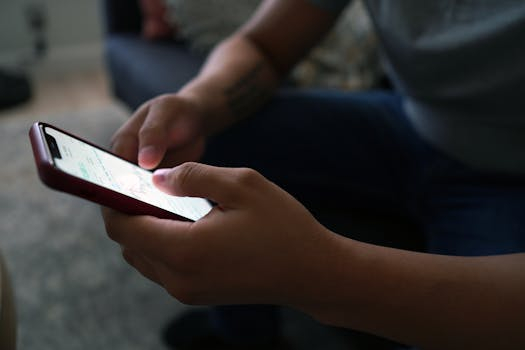DNA-Coded Personal Devices: Genetic Information Personalization Technologies
Imagine a future where your smartphone, fitness tracker, and even your coffee mug could all be personalized based on your unique genetic information. This may sound like something out of a science fiction novel, but with the advancement of DNA-coded personal devices, this could soon become a reality. These technologies allow for the customization of everyday objects based on an individual’s genetic makeup, leading to a new level of personalization and optimization that was previously unimaginable.
The Emergence of DNA-Coded Personal Devices
With the rise of direct-to-consumer genetic testing kits, the average person now has access to information about their own genetic makeup. Companies like 23andMe and AncestryDNA have made it possible for people to learn about their ancestry, health risks, and even personality traits based on their DNA. This newfound access to genetic information has opened up a whole new world of possibilities when it comes to personalization technologies.
DNA-coded personal devices use an individual’s genetic information to tailor the device specifically for them. This is done by incorporating DNA sensors into the device, which can read, analyze, and respond to an individual’s unique genetic makeup. From fitness and health tracking to home automation, the applications of DNA-coded personal devices are endless.
Health and Fitness Tracking
The most popular use of DNA-coded personal devices is in the health and fitness realm. By using an individual’s genetic information, these devices can provide personalized recommendations for exercise, nutrition, and even sleep. For example, a DNA-coded fitness tracker could analyze how an individual’s body responds to different types of exercise and adjust their workout routine accordingly. It could also make recommendations for specific foods that would be most beneficial based on an individual’s genetic predispositions.
Furthermore, these devices can also track an individual’s health in real-time and provide personalized alerts for potential health risks. This could be lifesaving for individuals with a family history of certain diseases or genetic predispositions to specific conditions. With DNA-coded personal devices, individuals can take control of their health in a whole new way.
Home Automation
Another exciting application of DNA-coded personal devices is in home automation. These devices can be programmed to recognize an individual’s genetic information and adjust the home environment accordingly. For example, a smart thermostat could use an individual’s genetic data to determine the best temperature for optimal sleep and automatically adjust it at night. Lighting, sound, and even aroma devices could also be personalized based on an individual’s genetic preferences for relaxation and stress reduction.
Additionally, DNA-sensing technology could be used to personalize security systems. By recognizing an individual’s unique genetic code, a home security system could automatically unlock the door for them and adjust the security settings to their specific preferences. This could provide a higher level of security and convenience for individuals and their families.
Privacy Concerns and Ethical Considerations
Despite the exciting possibilities of DNA-coded personal devices, there are also concerns when it comes to privacy and ethics. With access to an individual’s genetic information, there is the potential for misuse or exploitation. It is crucial that regulations and guidelines are put in place to protect individuals’ privacy and prevent discrimination based on genetic information.
Another concern is the accuracy of these devices. As with any technology, there is always the possibility of errors or inaccuracies. Therefore, it is essential that proper testing and verification procedures are in place to ensure the reliability and safety of DNA-coded personal devices.
Final Thoughts
The emergence of DNA-coded personal devices opens up a whole new world of possibilities for personalized technology. From health and fitness to home automation, these devices have the potential to revolutionize the way we live our daily lives. However, it is crucial that we proceed with caution and address any privacy concerns and ethical considerations. With proper guidelines and regulations in place, DNA-coded personal devices could truly change the way we interact with technology and make our lives more personalized and optimized than ever before.











